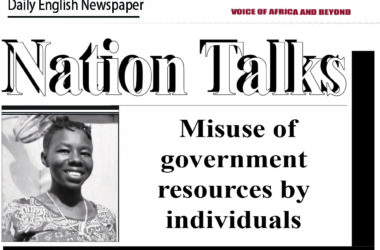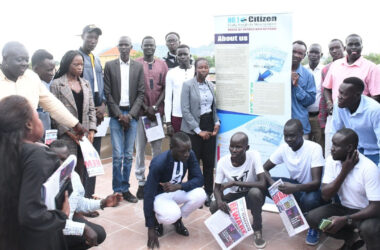By Malek Arol Dhieu
The only pandemic which is not attended to is corruption. The World Health Organisation should produce a vaccine against corruption and the International Criminal Court endorses it. Wars are fought and are brought to an end, but the war of corruption is unending.
Anti-corruption commissions and Pandora Papers are formed as weapons to combat corruption, but they are formed for the sake of formation, and not for the sake of belligerence. Corruption has conquered the world in general, Africa in particular and South Sudan in extra particular.
When the culprits of the Pandora Papers were read out and no South Sudanese was mentioned, I disturbed my brain’s equilibrium wondering how thaumaturgic the corrupt individuals became. I thought two, three or more corrupt South Sudanese would be mentioned to signal the less corrupt ones to slow down corruption.
Unfortunately, none was mentioned, not even lapsus linguae, I mean slip of the tongue. Despite our poor relation with the public funds, the praises and supports that we bestow upon corrupt individuals nourish corruption and sharpen its horns so piercingly that it is always excused.
Celebrating the corrupt individuals is an insurance of corruption against eradication in Africa generally and South Sudan particularly, with that of other African countries being tried to deal with, but that of South Sudan is not even being talked about, leave alone being dealt with.
The indicators of corruption have been blinking since the liberation struggle, but they were ignored following the fact that the governance was not worldly recognized. When South Sudan became independent, the headlights of corruption keep flashing with glare light to signal the institutions concerned with corruption to wake up and formulate ways of eliminating corruption.
When Anti-corruption commissions and Activists against corruption woke up, they found themselves being chained down unknowingly by the candidates and retirees of corruption. How were they chained unknowingly? They were chained by the subordination of their system under the system of those they want to deal with, and because when they lobby, they lobby from those they want to deal with, their words of lobbying chained them down more than any other attempt to quieten them.
Anti-corruption commissions are called independent commissions but I disagree with that name, not because the name doesn’t fit, the name fits best but the action goes contrary. If they were independent, they would decide independently and expertise their institutions superbly without the public seeing the image behind them as that of participants and retirers of corruption.
The corrupt individuals usually reside within the voices of activists and chairpersons of Anti-corruption commissions purposely to neutralize their actions against corruption. This is what disarms them of weapons against corruption. The chairpersons of Anti-corruption commissions are disarmed not because they come disarmed, but because they lose their weapons during lobbying.
As long as corruption conquers the country, service delivery escapes and the country finds herself in a great turmoil that requires years to correct. Corruption undermines democracy and good governance, therefore a country presided over by corruption becomes malnourished and loses her nationhood.
A lion never runs away when it has killed a cow until the owner of the cow comes, however much other people chase it, it knows the sacrificial actions of the owner. Now that the resources being corruptly acquired belong to the peasants and a few servant-hearted couths, why can’t they rush quickly to rescue them?
The corrupt individuals have refused to eat public funds with spoons, they eat them with bowls. The public shouts and the corrupt individuals continue involving in corruption, the activists and chairpersons of Anti-corruption commissions screech to halt corruption, but the corruptionists mind their own business. Until corruption is brought to an end shall South Sudan grow!
The author is a medical student, University of Juba.
Latest Stories
- 15 hours ago
- Juba Modern Shopping Mall construction resumes
- 15 hours ago
- Country-driven research MoU signed
- 15 hours ago
- World Bank funds climate-smart farming in South Sudan
- 15 hours ago
- Jebel Lado residents appeal for urgent aid as floods hit
- 16 hours ago
- SPLA-IO condemns attack on its position in Jonglei State



